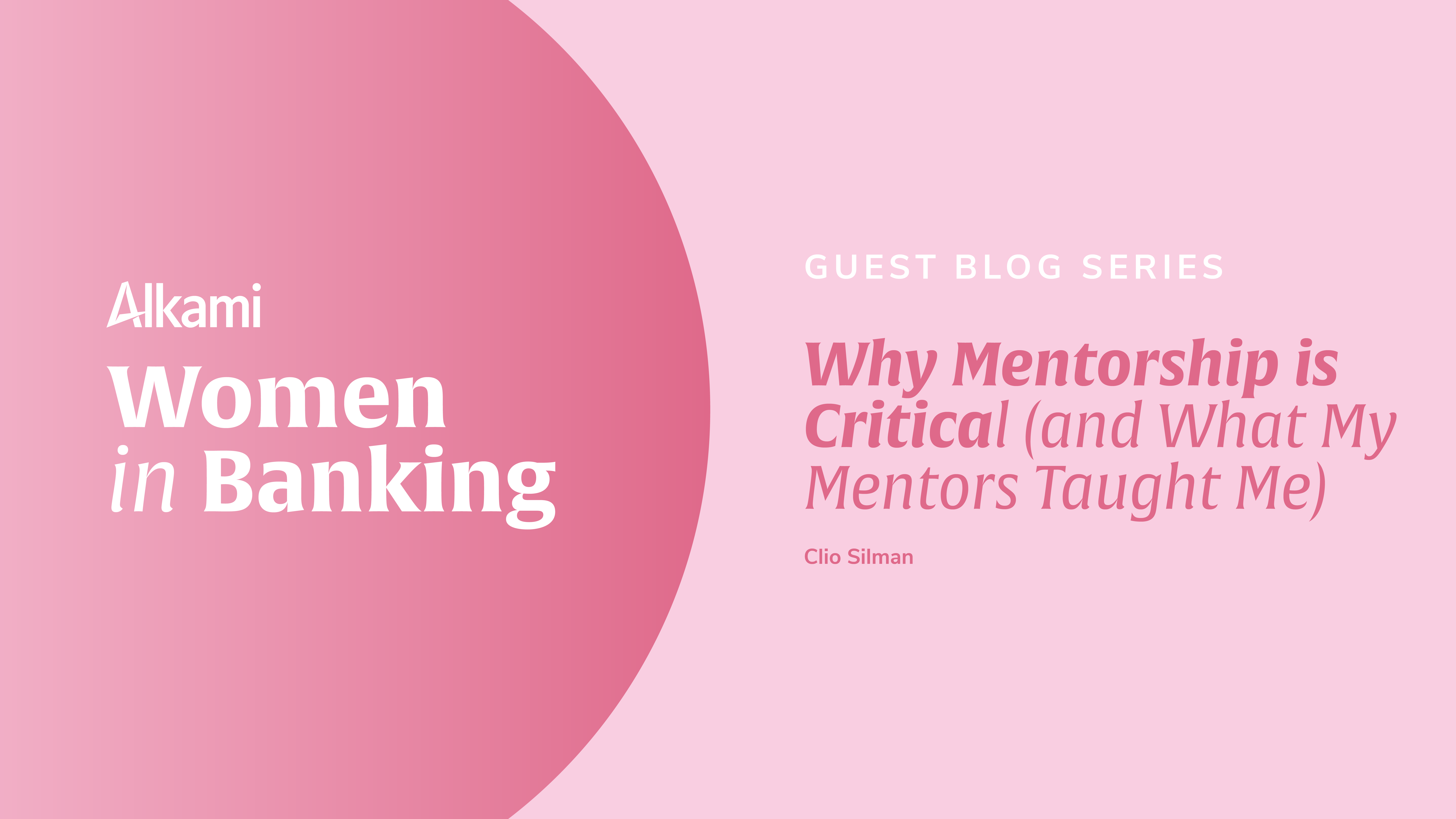Leading up to
Alkami Co:lab 2025 and our
third annual Women in Banking event, we connected with some female leaders to ask them about their experiences in the financial services industry, their perspectives, emerging trends, and where they think the future of digital banking is heading. In this blog, we’ll hear from Clio Silman, Managing Director at
Cornerstone Advisors.
When I started my banking career in 1989, women had to wear skirt suits or dresses. Now, we can wear pants and other business casual options. It’s far from the only change over the decades. Early on in my career, I always felt I should put in more effort and work more hours to prove myself and now I let the quality of my work do the talking.
What hasn’t changed in the 35+ years since I started my career is the importance of surrounding myself with mentors and advocates. Over the years, I have received so much advice and guidance from mentors and advocates that have stayed with me. Here are some of the standout lessons:
- I was only a couple of years into my career when I moved to the Finance and Analysis team. We were running several strategic initiatives and I frequently found myself in meetings with the C-suite. I was the most junior. I was asked to take the meeting notes. The first time I wrote notes up, I ran them by my boss. His only feedback? Not to title the document “minutes.” Rather, he suggested calling them “action items” or “highlights.” He explained that I needed to put myself on par with the other analysts even though I was the most junior person on the team.
- He was the same mentor who told me that for every meeting I attended, I should come prepared with a point to make or a question to ask. In other words, be a participant, not an observer.
- My next mentor was also my boss. By his example, I learned to always give credit to the person who did the work, and when possible, to have the person who did the work, present the work….no matter how junior they are. When your team shines, you shine.
- My first mentor who was not my boss advised me to always make time for lunch or an afterwork drink with colleagues because the relationships you make at work are critical personally and professionally. In today’s remote work environment, this often takes the form of allowing time to chat about non-work stuff in a meeting.
- One of my first female mentors was also a boss. In a performance review, she told me that no one will tell you to work less hours and that I needed to set boundaries.
- At one point in my career, I took over the Information Technology (IT) department. At the time, I basically knew nothing about IT except how to contact the help desk. I decided to seek out a mentor and reached out to the gentleman who ran IT at the prior bank I worked at. He taught me that I don’t need to know everything; however, I do need to build a network of experts and get comfortable asking for help.
- One of my favorite mentors helped me more through his actions, work product and willingness to connect – he has been a mentor for the past 20+ years
These are all lessons I live by today and they now come naturally for me. I make sure my team gets credit for what they do and are presenting their work. I set reasonable boundaries, so work doesn’t bleed into other areas of my life. I take time to connect with colleagues socially to get to know them better. I’m the first to say if I don’t know something and then I find the expert. And yes, there are times to volunteer to document the “action items” in a meeting.
I’ve worked for companies with and without formal mentor programs, and to be honest, I am on the fence on the effectiveness of some mentor programs I’ve been involved in because some felt forced. I’ve had mentees who seemed to be involved in the program because they had to.
I believe we all own our careers and need to seek out mentors and advocates. To do this, companies need to foster opportunities for employees to meet individuals throughout the organization so we can find our mentors – regardless of where we are in our careers.
